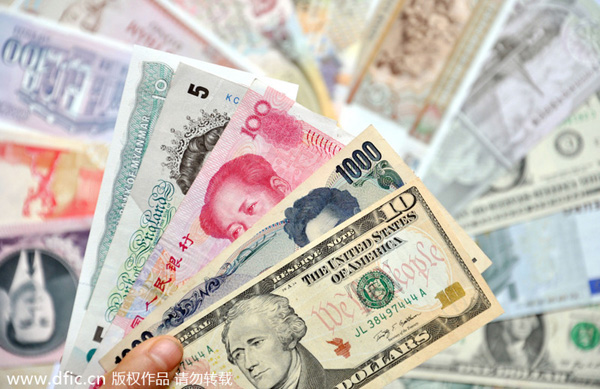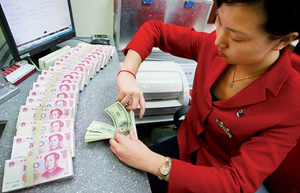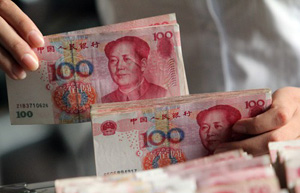 |
|
Photo taken on March 16, 2014, shows yuan (central) and other currencies in the picture. [Photo/IC] |
The People's Bank of China (PBOC) website on Monday said that direct yuan-euro trade would reduce exchange costs and it will actively support direct trading.
Trade between China and Europe in the first half of this year reached $291 billion, up 12 percent year on year, according to the Ministry of Commerce. The China Foreign Exchange Trading System already offers yuan trade against the euro but only through the US dollar as an intermediary.
The direct trade is a major development for the internationalization of the Chinese currency, said Ryan Song, head of markets for China at HSBC, one of the first batch of market makers.
The yuan has become the seventh biggest payment currency and the ninth biggest transaction currency in the world but it only accounts for 1.4 percent and 2.2 percent of the world's daily foreign exchange settlement and trading volume respectively, said Zhang Maorong, a researcher with the China Institutes of Contemporary International Relations.
"There is great potential for the internationalization of the Chinese currency," said Zhang.
The government keeps a tight grip on the capital account but is gradually relaxing its hold on the yuan, making it a global reserve currency.
China is under pressure to diversify its foreign exchange reserves-the world's largest - which stood at nearly $4 trillion at the end of June.
Currency swaps with foreign governments have increased overseas circulation of the yuan and in June direct trading began between the yuan and Britain's pound.
Direct onshore trade is allowed in a number of currencies, including the Japanese yen, Australian dollar, New Zealand dollar, Malaysian ringgit and Russian ruble.
|
 |
 |
| Europe helps boost yuan use internationally | Putin looks to RMB to replace greenback |
